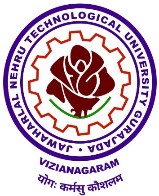The following are Graduate Attributes for UG Engineering Programme:
POs
Program Outcomes (POs)
PO# | Graduate Attributes | PO statements |
1 | Engineering knowledge: | Apply the knowledge of mathematics, science, engineering fundamentals and an engineering specialization to the solution of complex engineering problems. |
2 | Problem analysis: | Identify, formulate, review research literature, and analyze complex engineering problems reaching substantiated conclusions using first principles of mathematics, natural sciences, and engineering sciences. |
3 | Design/development of solutions | Design solutions for complex engineering problems and design system components or processes that meet the specified needs with appropriate consideration for the public health and safety, and the cultural, societal, and environmental considerations. |
4 | Conduct investigations of complex problems | Use research based knowledge and research methods including design of experiments, analysis and interpretation of data, and synthesis of the information to provide valid conclusions. |
5 | Modern tool usage | Create, select and apply appropriate techniques, resources, and modern engineering and IT tools including prediction and modeling to complex engineering activities with an understanding of the limitations. |
6 | The Engineer and society | Apply reasoning informed by the contextual knowledge to assess societal, health, safety, legal and cultural issues and the consequent responsibilities relevant to the professional engineering practice. |
7 | Environment and sustainability | Understand the impact of the professional engineering solutions in societal and environmental contexts, and demonstrate the knowledge of, and need for sustainable development. |
8 | Ethics | Apply ethical principles and commit to professional ethics and responsibilities and norms of the engineering practice. |
9 | Individual and team work | Function effectively as an individual, and as a member or leader in diverse teams, and in multidisciplinary settings. |
10 | Communication | Communicate effectively on complex engineering activities with the engineering community and with society at large, such as, being able to comprehend and write effective reports and design documentation, make effective presentations, and give and receive clear instructions. |
11 | Project management and finance: | Demonstrate knowledge and under own work, as a member and leader in a team, to manage projects and in multidisciplinary environments. |
12 | Life-long learning | Recognize the need for, and have the preparation and ability to engage in independent and life-long learning in the broadest context of technological change. |
PEOs
Program Educational Objectives(PEOs):
Sl.No. | PEO# | Program educational objectives |
1 | PEO1 | The graduates of the Program will be able to apply their analytical and professional knowledge to take on higher responsibilities in industry and diverse fields of Electrical engineering. |
2 | PEO2 | The graduates will acquire capability to apply their technical knowledge of electrical and electronics to pursue higher education and research.ply their technical knowledge of electrical and electronics to pursue higher education and research. |
3 | PEO3 | The graduates will be enthusiastic towards life-long learning, creative thinking, and career enhancement and adapt to changing professional and societal relevance especially rural needs. |
PSOs
Program Specific Outcomes(PSOs):
Sl.No. | PSO# | Program Specific Outcomes |
1 | PSO1 | Able to explore the scientific theories, methodologies and contemporary technologies in planning, designing, construction, operation, control and maintenance of conventional and renewable power systems. |
2 | PSO2 | Competent to apply the knowledge on development and practical application of power electronics technology in association with power systems in inventive, vibrant and challenging environment, for the research based teamwork. |
3 | PSO3 | Proficient to apply the knowledge of control science and technology in modification and realization of systems to apply in diverse areas of societal and economic importance. |

